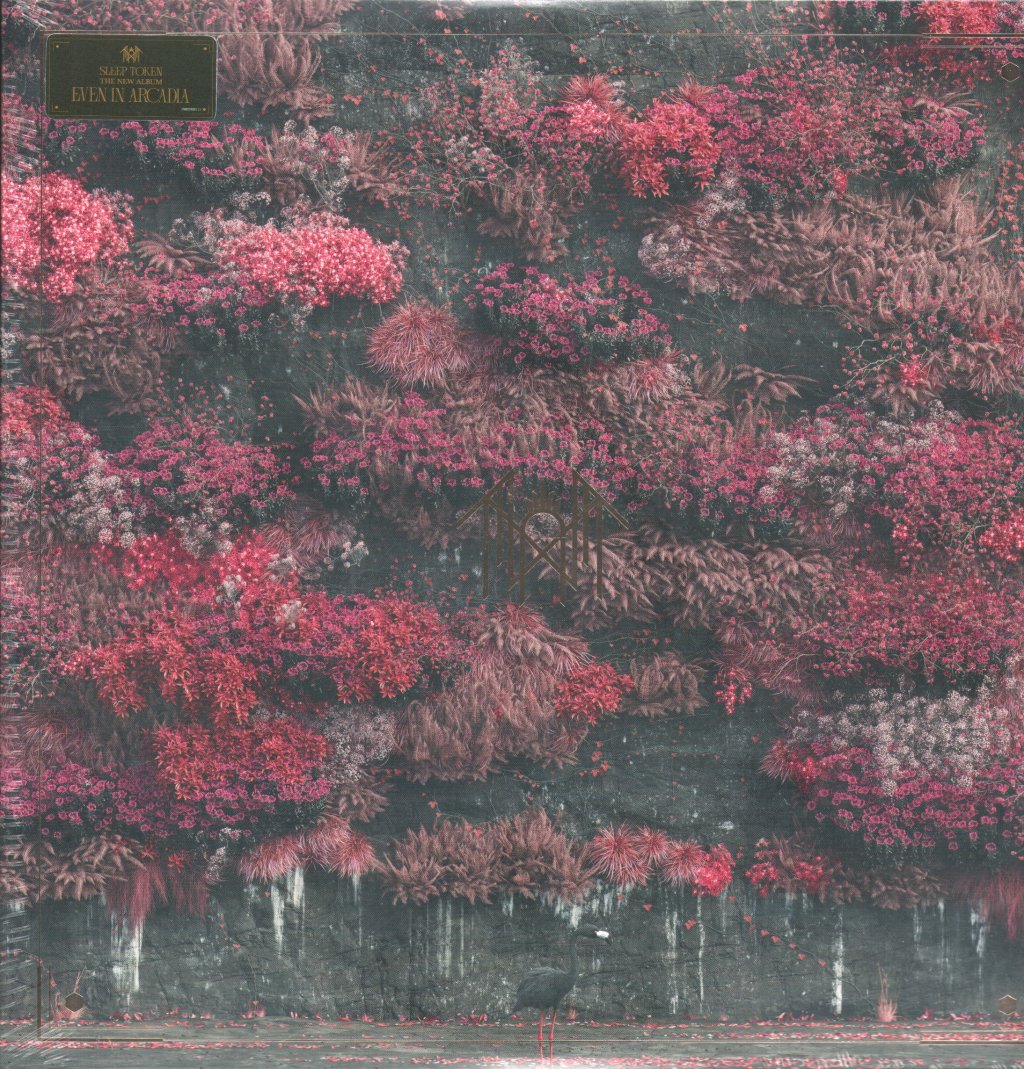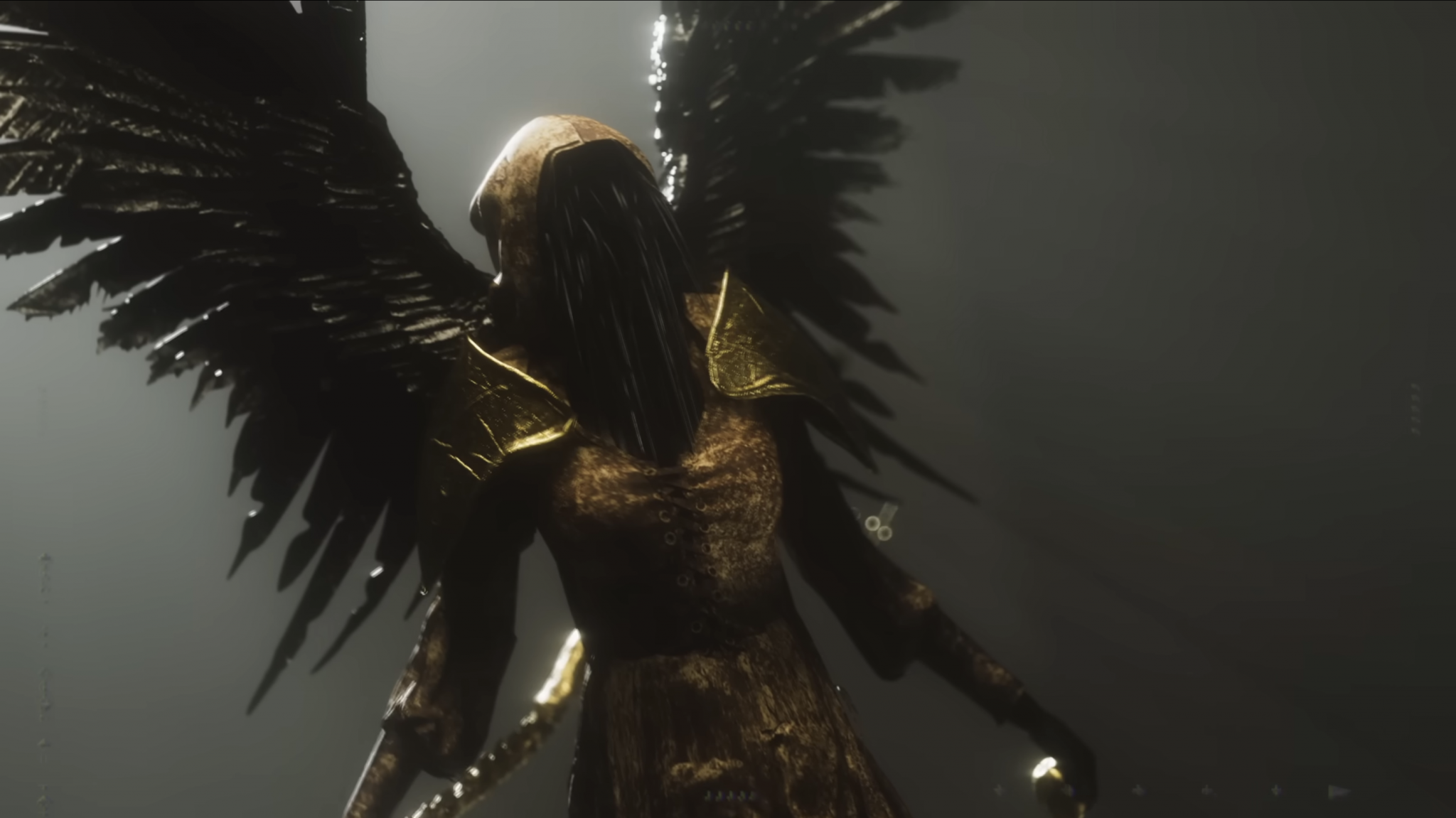And given how innovation works in culture today, does it even matter if they are?
––When you think of a metalhead
Tell me, what comes to mind?
Well, maybe stone-washed jeans, a mullet
A guy who’s evolutionarily one step behind…––
Stereotypes die hard. Those lines from the song ‘Hats Off To Halford’ (1999) by Atom and his Package were written in the mid-1990s in celebration of Rob Halford, the lead singer of Judas Priest, publicly outing himself as a gay man. Thirty years later, the metalhead-as-Neanderthal trope still has plenty of life to it, not least because some metalheads like it that way.
As ‘insiders’ have long known, metal has been a very broad church for decades. Antediluvian and populist sub-genres coexist with some of the most ‘out there’ experimental music ever made. Yet it may be that the growing success of one contemporary metal band, Sleep Token, will finally deliver the coup-de-grace to the idea that metal is just one thing. And not everyone is happy about that.
Sleep Token began releasing music in 2016 and are probably British – that’s pretty much all we know about them biographically speaking. Describing their music is difficult. Their sound is so embedded in the visual and mythological context they construct for themselves that it becomes hard to separate out the music from the rest of it. Playing live, the band disguise their identities under masks; they never talk to the audience. They have only done a couple of interviews and, so far, no one has revealed their secret identities, other than that they are based in the UK. The vocalist is named ‘Vessel’ and, in one of their few public statements, he and the rest of the band claim to be serving some kind of being called ‘Sleep’.
Of course, metal bands (and others) have used masks and make up to disguise themselves before. But acts like Kiss, Slipknot, Ghost and GWAR were never entirely anonymous; their members conducted interviews and their identities were known, even if their faces sometimes took a few years to see the light of day. Sleep Token’s eerie anonymity has more in common with that of the US art rock band The Residents, whose identities and faces have been hidden since the 1960s, even if a few biographical details have leaked out. But whereas The Residents had an impish sense of humour (usually performing with giant eyeball masks), Sleep Token’s live performances are visually disconcerting affairs. The symbolic meaning of their decorated masks is obscure, the stage set combines light and darkness in ways that are hard to parse, they move slowly if at all and Vessel’s cadaveric appearance seems to locate the band somewhere other than here.
Yet the most disconcerting thing about Sleep Token is what happens when Vessel starts to sing. With their audience visually ‘primed’ for metal’s sonic outer limits – perhaps for black, occult metal of some kind – it’s a considerable shock to be greeted with tuneful vocal lines. While Sleep Token do sometimes traffic in screams, Vessel’s vocal fulcrum is somewhere in the region of introspective indie rock, extending even to R&Bish pop. The band certainly make use of the kind of crunchy distorted guitar popularised by Swedish extreme metal band Meshuggah, but it coexists with woozy post-rock stylings.

Often, the reaction of metalheads when they first encounter Sleep Token is bafflement: with their metal billing and esoteric visual identity, it’s a shock to hear something so… well, surprisingly conventional. It’s only after hearing multiple songs that their metal foundation becomes apparent. The question of whether Sleep Token are really ‘metal’ is fiercely contested in online and offline arguments. But given metal’s contemporary diversity, it’s almost impossible to find a consensus as to what metal isn’t.
Debates over authenticity, in metal or any other genre, can be immensely tedious. Sleep Token’s opaque face appears impervious to the charge. And the band’s audience is growing exponentially. They recently headlined the Download festival in the UK and regularly play arenas; in time it is perfectly possible that they will be headlining stadiums. While their audience is now extending far beyond metal, metalheads remain their foundational constituency, for now at least. Metal has always been heavily invested in ideas of ‘authenticity’. At the same time, metal has also always innovated. That contradiction leads to endless boundary disputes. Was 1980s ‘hair’ metal authentically metal? Was grunge authentically metal? Was the fusion of metal and hip hop that gave birth to nu metal in the 1990s authentically metal? Since the 1980s there has been a constant rearguard action fought by those who would maintain a vision of metal as a tough, beery, no-nonsense, white masculine art. It never succeeds and metal’s broadening has continued remorselessly.
Given that metal is merely the sum total of what metal does, it is futile to argue whether Sleep Token are authentically metal. There is a useful conversation to be had about what they tell us about innovation in music today. The band seem to suggest a mode which deliberately blurs the line between ‘difficult’ sounds and ‘mainstream’ sounds. I suspect that it is this blurring that makes Sleep Token an uncomfortable listen – they force us to question where exactly we are located on the taste continuum, in hierarchies of cultural capital. It is never clear whether the band is ‘taming’ difficult sounds or making conventional sounds more difficult.
There is a long history of so-called ‘edgy’ music being domesticated and mainstreamed. But I don’t think that Sleep Token are an example of that. Rather, their significance is that they refuse to choose between such edginess or domestication. And authenticity has long ceased to be a helpful standard against which to judge music and musicians. Sleep Token have come to bury this tired old concept, and show us what awaits if we let go of it.
Keith Kahn-Harris is a sociologist and writer
